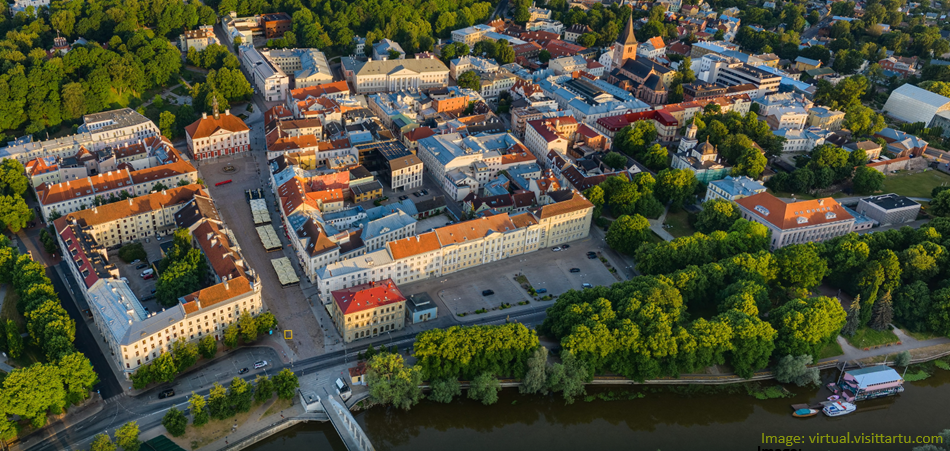The Tartu-based conference series Geometric Foundations of Gravity (GeomGrav), together with its biannual extensions Teleparallel Gravity (TeleGrav) and Metric-Affine Frameworks for Gravity (MafFGrav), celebrate their 10th anniversary in 2026.
GeomGravX, this year’s edition of the scientific meeting on gravity and fundamental physics in Tartu, will focus on the wide range of approaches to gravity that eXtend the standard formalism of general relativity beyond a massless metric field in pseudo-Riemannian geometry derived from the Einstein–Hilbert action. The program will cover topics ranging from foundational mathematical aspects to observational tests of the gravitational interaction, including applications in cosmology, gravitational waves, black holes, quantization, and much more.
Topics under discussion will include (but not be limited to):
- Extensions of general relativity (metric-affine gravity, Poincare gauge gravity, scalar/vector/tensor gravity, teleparallel gravity, massive gravity, bi-metric gravity, etc.);
- Phenomenology of extended gravity (black holes, ordinary/neutron/boson/grava stars, gravitational waves, cosmology, dark energy, dark matter, galaxies, early universe, etc.);
- Beyond Lorentzian geometry in classical and quantum gravity (doubly/deformed relativity, standard model extension, Hamilton geometry, Finsler geometry, etc).
Special topic: Gravity Theory Research in the Age of AI
While the use of machine learning in data analysis is already commonplace, and large language models have found many applications beyond translation and textual editing, the revolutionary impact of AI on fundamental physics research is yet to be seen. The topic of the potential of AI to enhance research is frequently brought up in discussion and elicits a wide spectrum of opinions and responses. Therefore, the Friday morning session will focus on a critical assessment of positive and negative experiences the conference participants have had in using AI/LLM tools, as well as to the ethical and practical issues that inevitably arise. Discussion topics will range from making use of AI tools in symbolic algebra coding and in computer-assisted proofs, to approaches that aim to enhance theoretical understanding and knowledge and generate novel theories and results.
Plenary speakers
The list of plenary speakers include:
- Mariam Bouhmadi-López (Bilbao)
- Will Barker (Prague)
- David Mota (Oslo)
- Kristina Giesel (Erlangen)
Acknowledgements
This conference is supported by the Estonian Research Council through the Center of Excellence TK202 "Foundations of the Universe" and the grants PRG2608, PSG910, MOB3JD1233, as well as by the Institute of Physics, University of Tartu.

